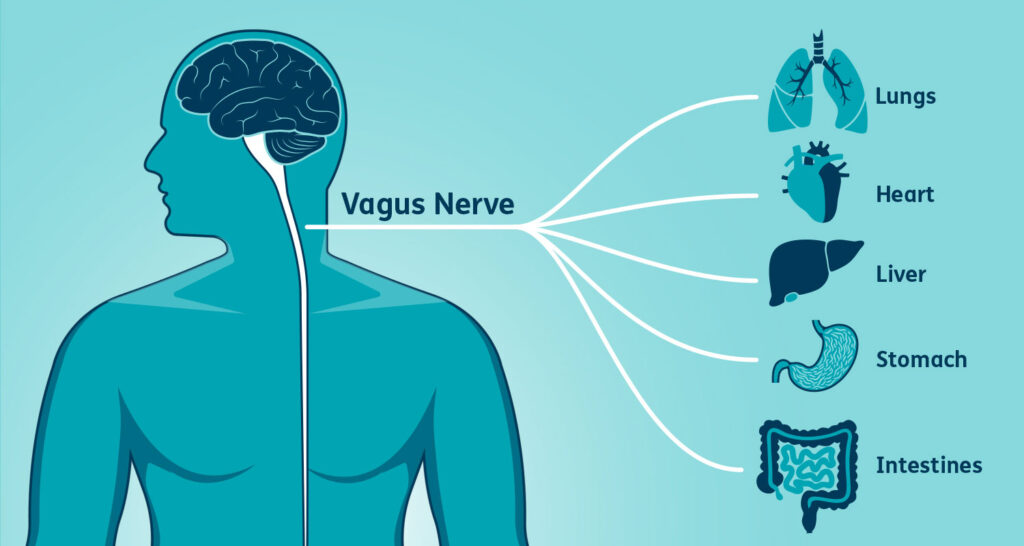Discover Everything You Need to Know About The Vagus Nerve
8 reasons why you should pay attention to your vagus nerve

The vagus nerve, also known as the tenth cranial nerve, is the longest and most complex nerve in the human body. It connects the brain to several organs, including the heart, lungs, digestive system, and various glands.
The vagus nerve is a key player in the autonomic nervous system, which controls involuntary bodily functions. It has two branches: Sympathetic Nervous System for “fight or flight” responses and the parasympathetic nervous system (PNS) for “rest and digest” responses and is thought to be a prime regulator of the body’s stress-recovery balance.
The vagal tone refers to the activity of vagus nerve or can be thought of as the strength of the vagus nerve. It reflects the ability of the vagus nerve to regulate and balance bodily functions, impacting various aspects of health. When you stimulate your vagus nerve, you improve your health in the following areas:
- Stress Response
High vagal tone is associated with a more efficient stress response. A well-functioning vagus nerve helps the body recover quickly from stressors, promoting emotional resilience.
- Heart Health
Vagal tone plays a crucial role in regulating heart rate and blood pressure. Higher vagal tone is linked to better cardiovascular health, reducing the risk of heart disease.
- Digestive Health
The vagus nerve stimulates digestive processes, including the release of digestive enzymes and the contraction of smooth muscles in the gastrointestinal tract. Optimal vagal tone supports efficient digestion.
- Inflammation Control & Improve Immunity
The vagus nerve has anti-inflammatory effects. It helps control inflammation throughout the body, contributing to a balanced immune response. improving the body’s ability to fight off infections.
- Better Sleep
Optimal vagal tone is associated with improved sleep quality. The calming effects of the parasympathetic nervous system, facilitated by the vagus nerve, contribute to a more restful sleep.
- Blood Sugar Regulation
The vagus nerve influences insulin sensitivity and helps regulate blood sugar levels. Balanced vagal tone contributes to better metabolic health.
- Social Engagement
The vagus nerve is involved in social interactions and the ability to connect with others. It plays a role in the Polyvagal Theory, which links social engagement to vagal tone.
- Cognitive Function
Vagal tone has been associated with cognitive performance. Adequate vagal activity may support better attention, memory, and overall cognitive function.